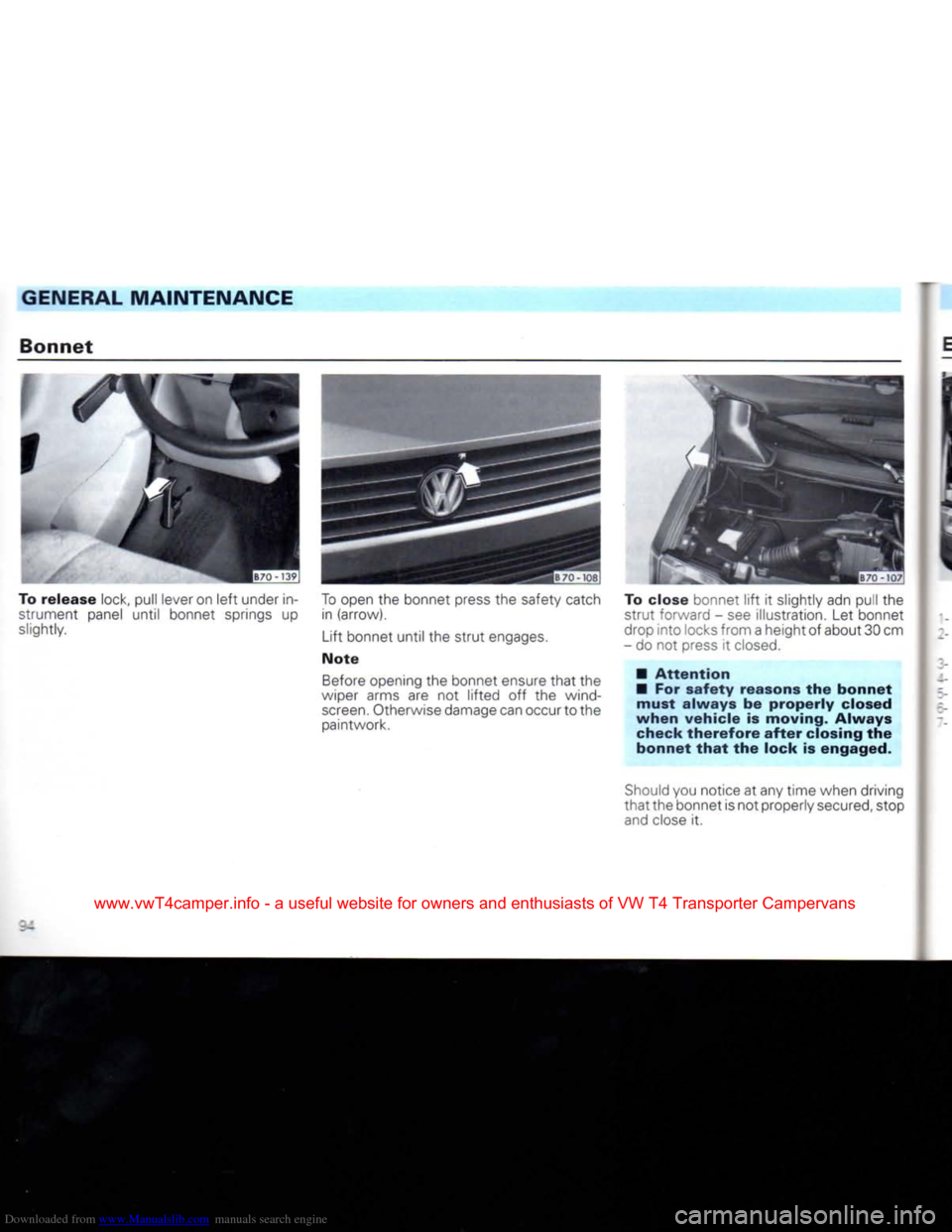Page 89 of 164
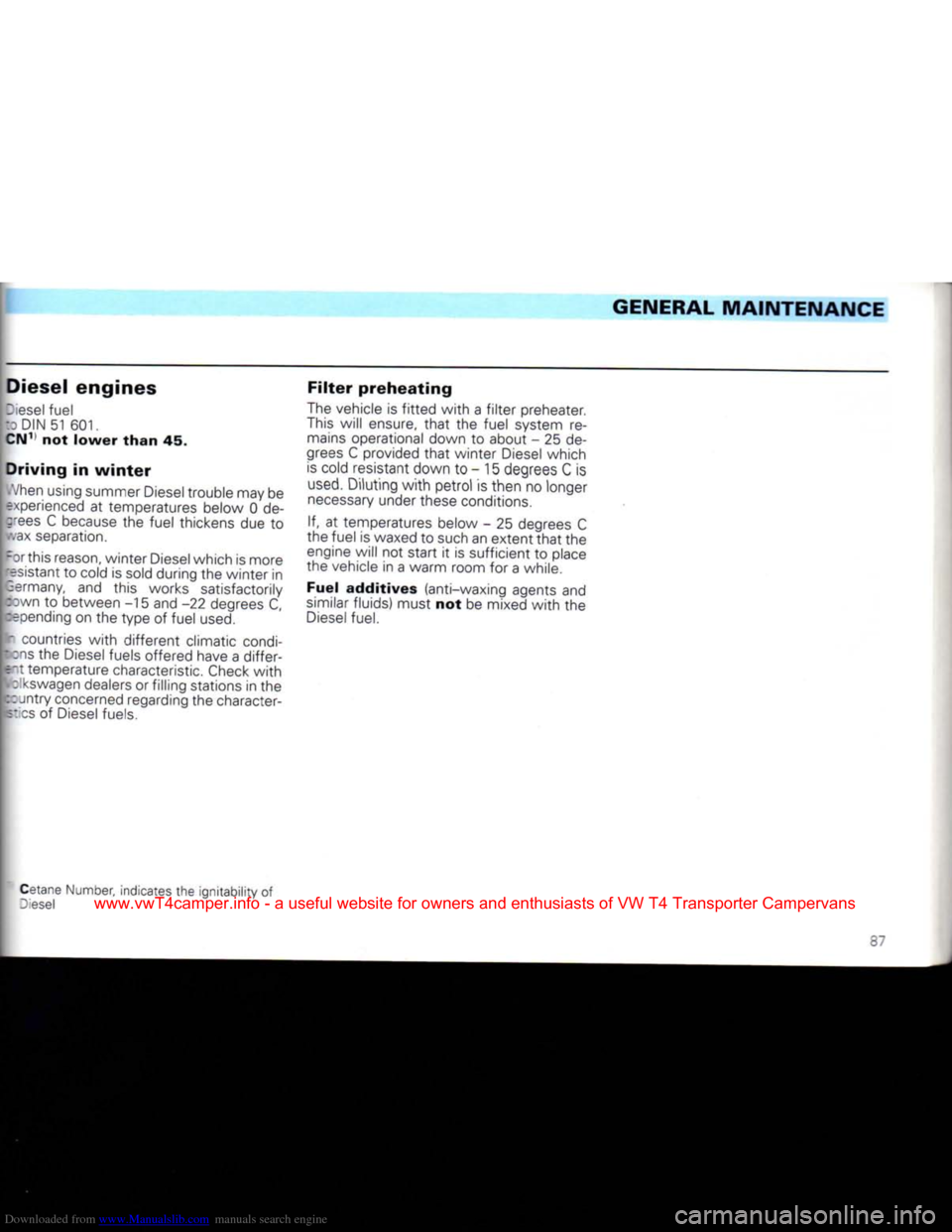
Downloaded from www.Manualslib.com manuals search engine
GENERAL
MAINTENANCE
Diesel engines
Diesel
fuel
I
DIN 51 601.
CN1'
not
lower
than
45.
Driving
in
winter
When
using summer Diesel trouble may be
experienced
at temperatures below 0 de
grees
C because the fuel thickens due to
wax
separation.
Br
this
reason,
winter
Diesel
which is more
"esistant
to cold is sold during the winter in
Germany,
and this works satisfactorily
:Dwn
to between -15 and -22 degrees C,
cepending
on the type of fuel
used.
I countries with different climatic condi-
" :ns the Diesel fuels offered have a differ
ent
temperature characteristic.
Check
with ; kswagen dealers or filling stations in the
::
jntry
concerned regarding the character-
s:
cs of Diesel fuels.
Filter
preheating
The
vehicle is
fitted
with a filter preheater.
This
will ensure, that the fuel system re
mains
operational down to about - 25 de
grees
C provided that winter Diesel which
is
cold resistant down to - 15
degrees
C is
used.
Diluting with petrol is then no longer
necessary
under these conditions.
If, at temperatures below - 25 degrees C
the fuel is waxed to such an extent that the
engine
will not start it is sufficient to place
the vehicle in a warm room for a while.
Fuel
additives
(anti-waxing agents and
similar
fluids) must not be mixed with the
Diesel
fuel.
Cetane
Number, indicates the ignitability of
Diesel
www.vwT4camper.info - a useful website for owners and enthusiasts of VW T4 Transporter Campervans
Page 90 of 164
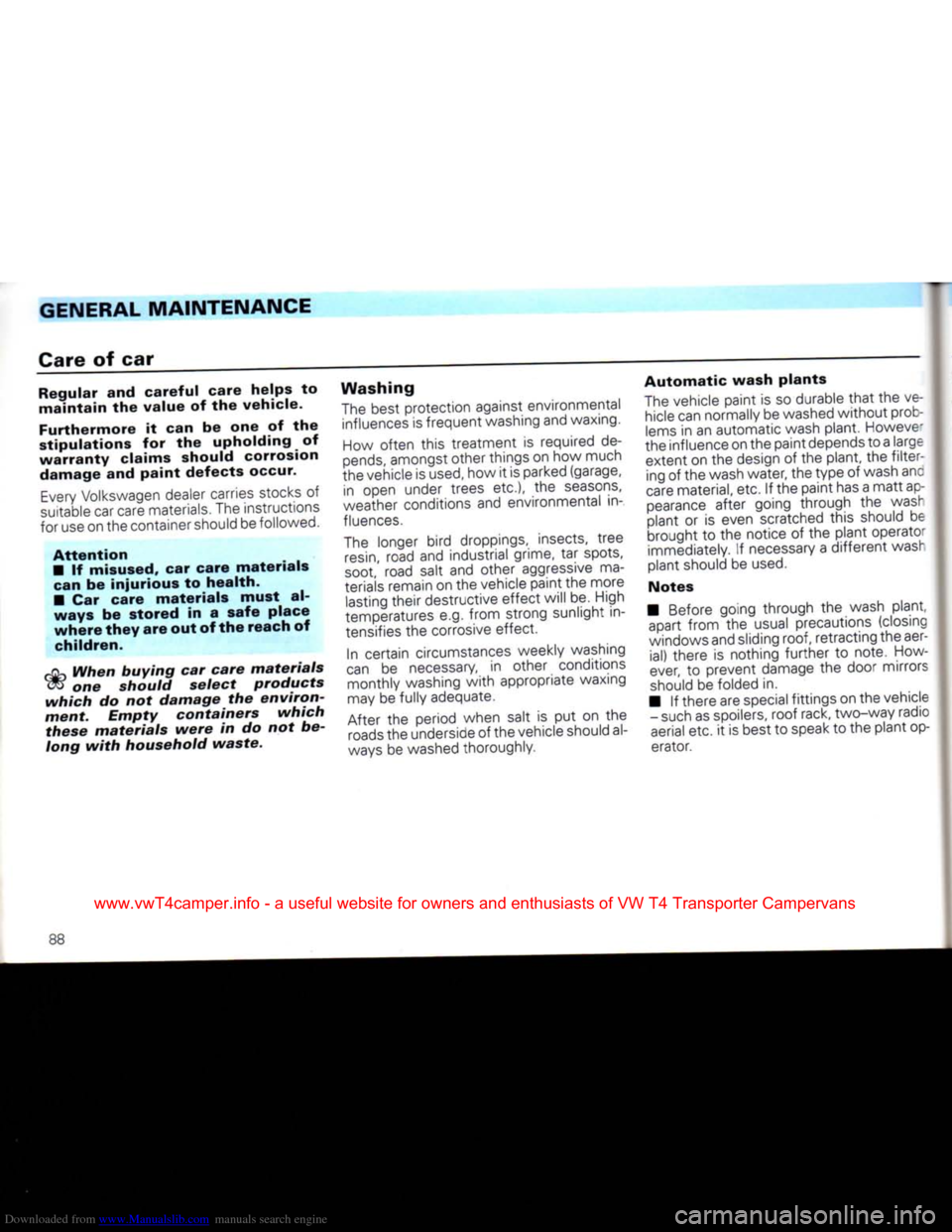
Downloaded from www.Manualslib.com manuals search engine
GENERAL
MAINTENANCE
Care
of car
Regular
and
careful
care
helps
to
maintain
the
value
of the
vehicle.
Furthermore
it can be one of the
stipulations
for the
upholding
of
warranty
claims should corrosion
damage
and
paint
defects
occur.
Every
Volkswagen dealer carries stocks
of
suitable car care materials. The instructions
for use on the container should be followed.
Attention
•
If
misused,
car
care
materials
can
be
injurious
to
health.
•
Car
care
materials
must
al
ways
be
stored
in a
safe
place
where
they
are out of the
reach
of
children.
When
buying
car
care
materials
one
should
select
products
which
do not
damage
the
environ
ment.
Empty
containers
which
these
materials
were in do not be
long
with
household
waste.
Washing
The
best protection against environmental
influences
is frequent washing and waxing.
How
often this treatment
is
required
de
pends,
amongst other things on
how
much
the vehicle is
used,
how
it
is parked (garage, in open under trees etc.),
the
seasons,
weather conditions
and
environmental
in
fluences.
The
longer bird droppings, insects, tree
resin,
road
and
industrial grime,
tar
spots,
soot, road salt
and
other aggressive
ma
terials remain on
the
vehicle paint the more lasting their destructive effect will be. High
temperatures e.g. from strong sunlight
in
tensifies
the
corrosive effect.
In certain circumstances weekly washing
can
be
necessary,
in
other conditions monthly washing
with
appropriate waxing
may
be
fully adequate.
After
the
period when salt
is put on the
roads
the underside
of
the vehicle should al
ways
be
washed thoroughly.
Automatic
wash
plants
The
vehicle paint
is so
durable
that
the ve
hicle
can normally be washed without prob
lems
in an
automatic wash plant. Howeve'
the influence on the paint depends
to
a large extent
on the
design
of the
plant,
the
filter
ing
of
the wash water, the type
of
wash anc
care
material, etc.
If
the paint has a
matt
ap
pearance
after going through
the
wash
plant
or is
even scratched this should
be
brought
to the
notice
of the
plant operate
immediately.
If
necessary
a
different wash
plant should
be
used.
Notes
• Before going through
the
wash plant, apart from
the
usual precautions (closing
windows and sliding roof, retracting the aerial) there
is
nothing further
to
note. How
ever,
to
prevent damage
the
door mirrors
should
be
folded
in.
•
If
there are special
fittings
on the vehicle - such as spoilers, roof rack, two-way radio
aerial
etc.
it is
best
to
speak
to the
plant operator.
88
www.vwT4camper.info - a useful website for owners and enthusiasts of VW T4 Transporter Campervans
Page 91 of 164
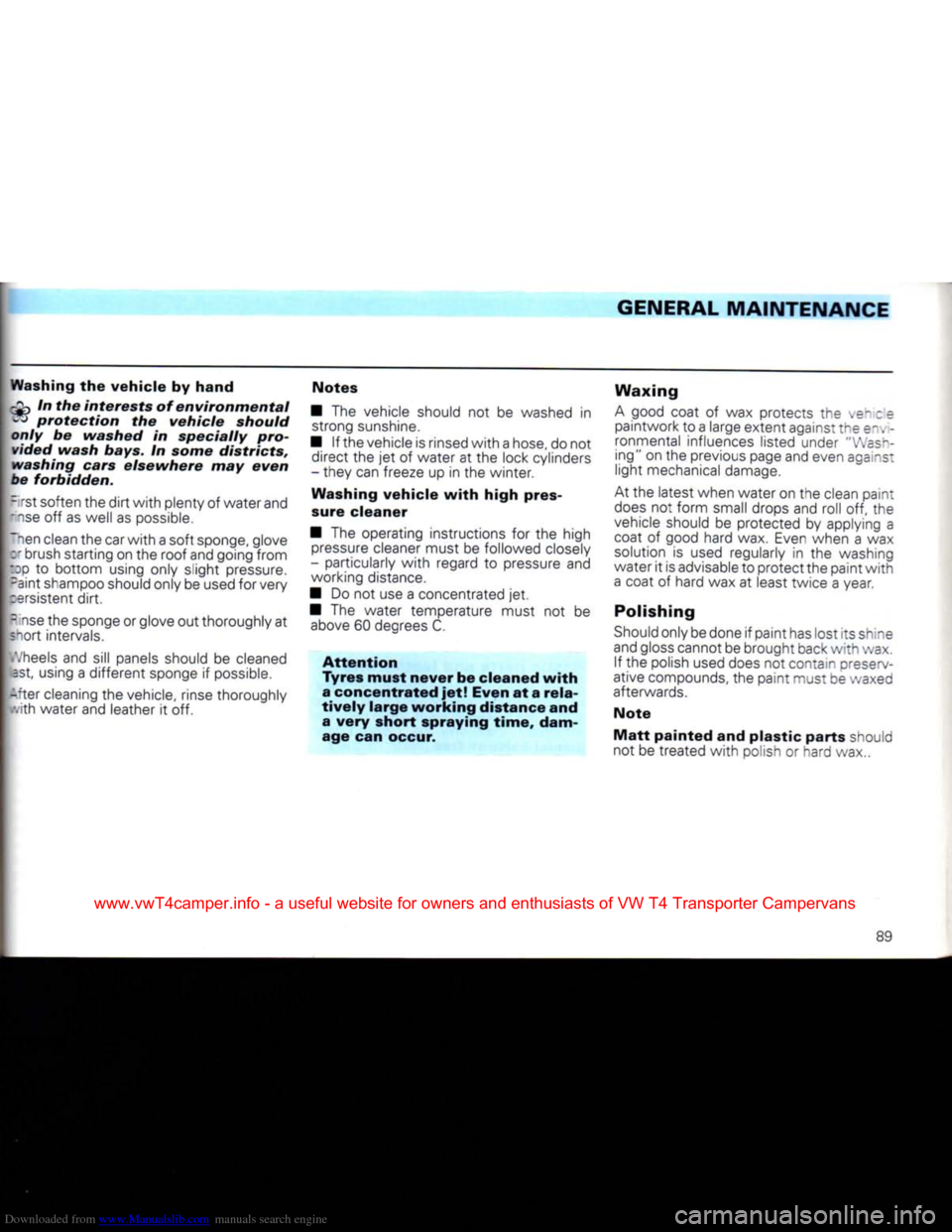
Downloaded from www.Manualslib.com manuals search engine
GENERAL
MAINTENANCE
Washing
the
vehicle
by
hand
In the
interests
of
environmental
B
protection
the
vehicle
should
only
be
washed
in
specially
pro
vided
wash
bays.
In
some
districts,
washing
cars
elsewhere
may
even
be
forbidden.
Irst
soften the
dirt
with
plenty of water and
-ise
off as well as possible.
~nen clean the car
with
a soft sponge, glove
or brush starting on the roof and going from :3p to bottom using only slight pressure. :aint shampoo should only be used for very
cersistent
dirt.
=
:nse
the sponge or glove out thoroughly at
snort intervals.
.'.'heels
and sill panels should be cleaned
last, using a different sponge if possible.
After cleaning the vehicle, rinse thoroughly
vith
water and leather it off.
Notes
• The vehicle should not be washed in strong sunshine.
• If the vehicle is rinsed
with
a
hose,
do not direct the jet of water at the lock cylinders
- they can freeze up in the winter.
Washing
vehicle
with
high
pres
sure
cleaner
• The operating instructions for the high
pressure
cleaner must be followed closely
- particularly
with
regard to pressure and working distance.
• Do not use a concentrated jet. • The water temperature must not be above 60 degrees C.
Attention
Tyres
must
never
be
cleaned
with
a
concentrated
jet! Even at a
rela
tively
large
working
distance
and a
very
short
spraying
time,
dam
age can occur.
Waxing
A
good coat of wax protects the .s~ : e
paintwork to a large extent against the e". -
ronmental influences listed under
"Wash
ing"
on the previous page and even agars:
light
mechanical damage.
At the latest when water on the clean paint
does
not form small drops and roll off, the
vehicle should be protected by applying a
coat of good hard wax.
Even
when a wax solution is used regularly in the washing
water it is advisable to protect the paint
with
a
coat of hard wax at least twice a year.
Polishing
Should
only be done if paint has lost its shine
and gloss cannot be brought back
with
wax. If the polish used does not contain preserv
ative compounds, the paint must oe waxed
afterwards.
Note
Matt
painted
and
plastic
parts
should not be treated
with
polish or hard wax..
89
www.vwT4camper.info - a useful website for owners and enthusiasts of VW T4 Transporter Campervans
Page 92 of 164
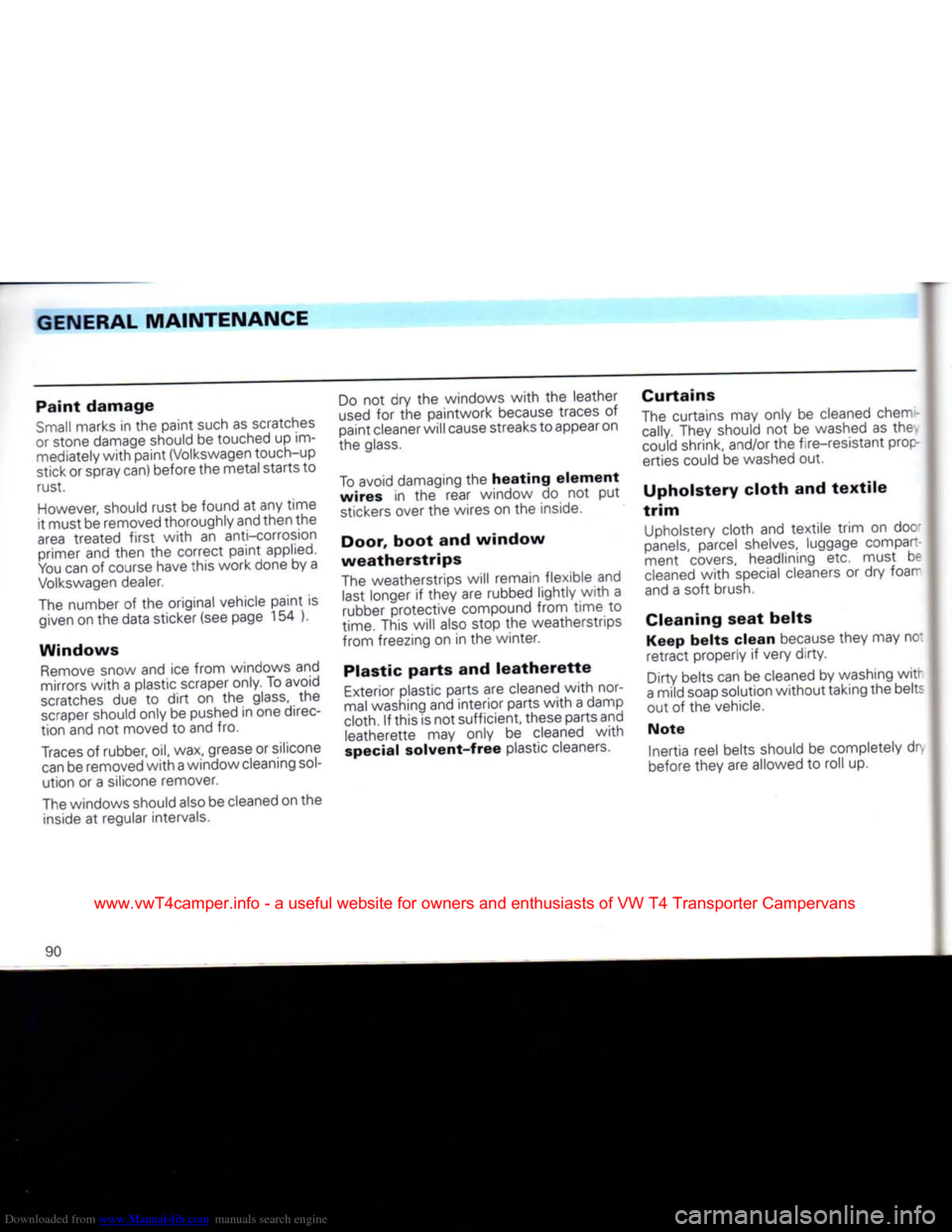
Downloaded from www.Manualslib.com manuals search engine
GENERAL MAINTENANCE
Paint damage
Small marks in the paint such as scratches
or stone damage should be touched up im mediately with paint (Volkswagen touch-up
stick or spray can) before the metal starts to rust.
However, should rust be found at any time
it must be removed thoroughly and then the
area treated first with an anti-corrosion primer and then the correct paint applied.
You can of course have this work done by a
Volkswagen dealer.
The number of the original vehicle paint is given on the data sticker (see page 154 ).
Windows
Remove snow and ice from windows and
mirrors with a plastic scraper only. To avoid
scratches due to dirt on the glass, the
scraper should only be pushed in one direc
tion and not moved to and fro.
Traces of rubber, oil, wax, grease or silicone
can be removed with a window cleaning
sol
ution or a silicone remover.
The windows should also be cleaned on the inside at regular intervals. Do not dry the windows with the leather
used for the paintwork because traces of
paint cleaner will cause streaks to appear on
the glass.
To avoid damaging the
heating element
wires
in the rear window do not put
stickers over the wires on the inside.
Door, boot
and
window
weatherstrips
The weatherstrips will remain flexible and last longer if they are rubbed lightly with a
rubber protective compound from time to
time.
This will also stop the weatherstrips
from freezing on in the winter.
Plastic parts
and
leatherette
Exterior plastic parts are cleaned with nor
mal washing and interior parts with a damp
cloth.
If this is not sufficient, these parts and leatherette may only be cleaned with
special solvent-free
plastic cleaners.
Curtains
The curtains may only be cleaned chemi cally. They should not be washed as the.
could shrink, and/or the fire-resistant properties could be washed out.
Upholstery cloth
and
textile
trim
Upholstery cloth and textile trim on doc-
panels, parcel shelves, luggage compart ment covers, headlining etc. must be
cleaned with special cleaners or dry foarr
and a soft brush.
Cleaning seat belts Keep belts clean
because they may nc:
retract properly if very dirty.
Dirty belts can be cleaned by washing with
a mild soap solution without taking the belt; out of the vehicle.
Note
Inertia reel belts should be completely dr.
before they are allowed to roll up.
90
www.vwT4camper.info - a useful website for owners and enthusiasts of VW T4 Transporter Campervans
Page 93 of 164
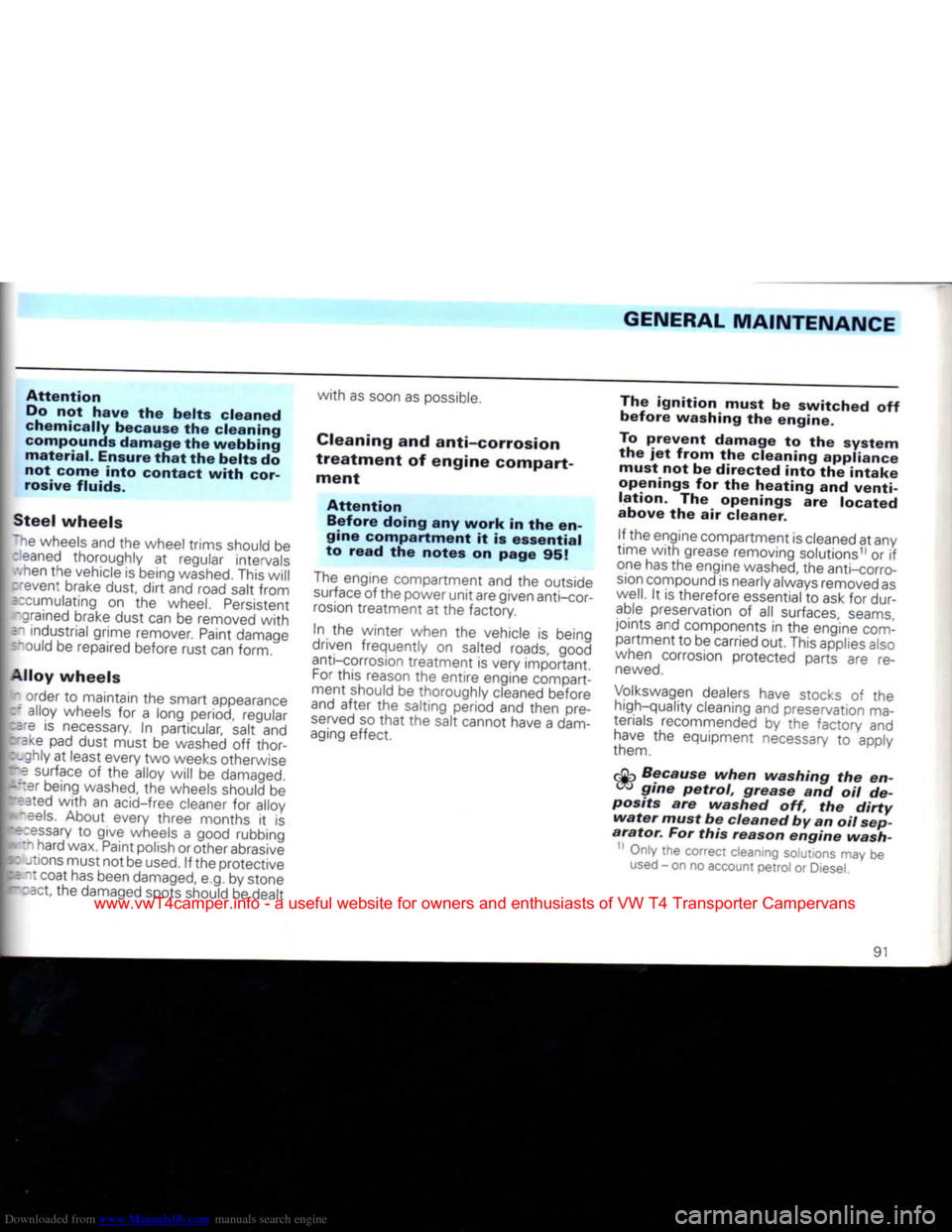
Downloaded from www.Manualslib.com manuals search engine
GENERAL
MAINTENANCE
Attention
Do
not have the belts cleaned
chemically
because the cleaning
compounds
damage the webbing
material. Ensure
that
the belts do not come into contact
with
cor
rosive
fluids.
Steel wheels
~ne wheels and
the
wheel trims should
be
:!eaned
thoroughly
at
regular intervals .'.hen the vehicle
is
being washed. This
will
"event brake dust,
dirt
and road salt
from
•cumulating
on the
wheel. Persistent "grained brake dust can
be
removed
with
="
industrial grime remover. Paint damage ;~ould
be
repaired before rust can form.
Alloy wheels - order
to
maintain
the
smart appearance
• alloy wheels
for a
long period, regular pre
is
necessary.
In
particular, salt
and
•Bke
pad dust must
be
washed
off
thor-
cghly
at
least every two weeks otherwise re surface
of the
alloy
will
be
damaged.
-~er
being washed,
the
wheels should
be
~f3ted
with
an
acid-free cleaner
for
alloy
"eels.
About every three months
it is
"f:essary
to
give wheels
a
good rubbing
». :n hard wax. Paint polish or other abrasive
•c
„tions must not be
used.
If
the protective
BE
-.t
coat has been damaged, e.g. by stone react,
the
damaged spots should be dealt
with
as soon
as
possible.
Cleaning and anti-corrosion
treatment
of
engine compart ment
Attention Before doing any
work
in the en
gine compartment it is essential
to read the notes on page 95!
The
engine compartment and
the
outside
surface
of
the power
unit
are given anti-cor
rosion treatment
at the
factory.
In
the
winter when
the
vehicle
is
being
driven frequently
on
salted roads, good
anti-corrosion treatment
is
very important.
For
this reason
the
entire engine compart
ment should
be
thoroughly cleaned before
and after
the
salting period
and
then pre
served
so
that
the
salt cannot have
a
dam
aging effect. The
ignition must be switched off
before washing the engine.
To
prevent damage to the system
the jet from the cleaning appliance must not be directed into the
intake
openings
for the heating and ventilation. The openings are located
above the air cleaner.
If
the engine compartment is cleaned
at
any
time
with
grease removing solutions1'
or if
one has the engine washed, the anti-corro
sion
compound is nearly always removed as
well.
It is
therefore essential
to
ask
for
dur
able
preservation
of all
surfaces,
seams,
joints
and components
in the
engine com partment
to
be carried out. This applies also
when corrosion protected parts
are re
newed.
Volkswagen
dealers have stocks
of the
high-quality cleaning and preservation ma
terials recommended
by the
factory
and
have
the
equipment necessary
to
apply
them.
Because
when
washing
the en
gine
petrol,
grease
and oil de
posits
are
washed
off, the
dirty
water
must
be
cleaned
by an oil
sep
arator.
For
this
reason
engine
wash-
11
Only
the
correct
cleaning
solutions may
be
used
-
on no account petrol
or
Diesel.
91
www.vwT4camper.info - a useful website for owners and enthusiasts of VW T4 Transporter Campervans
Page 94 of 164
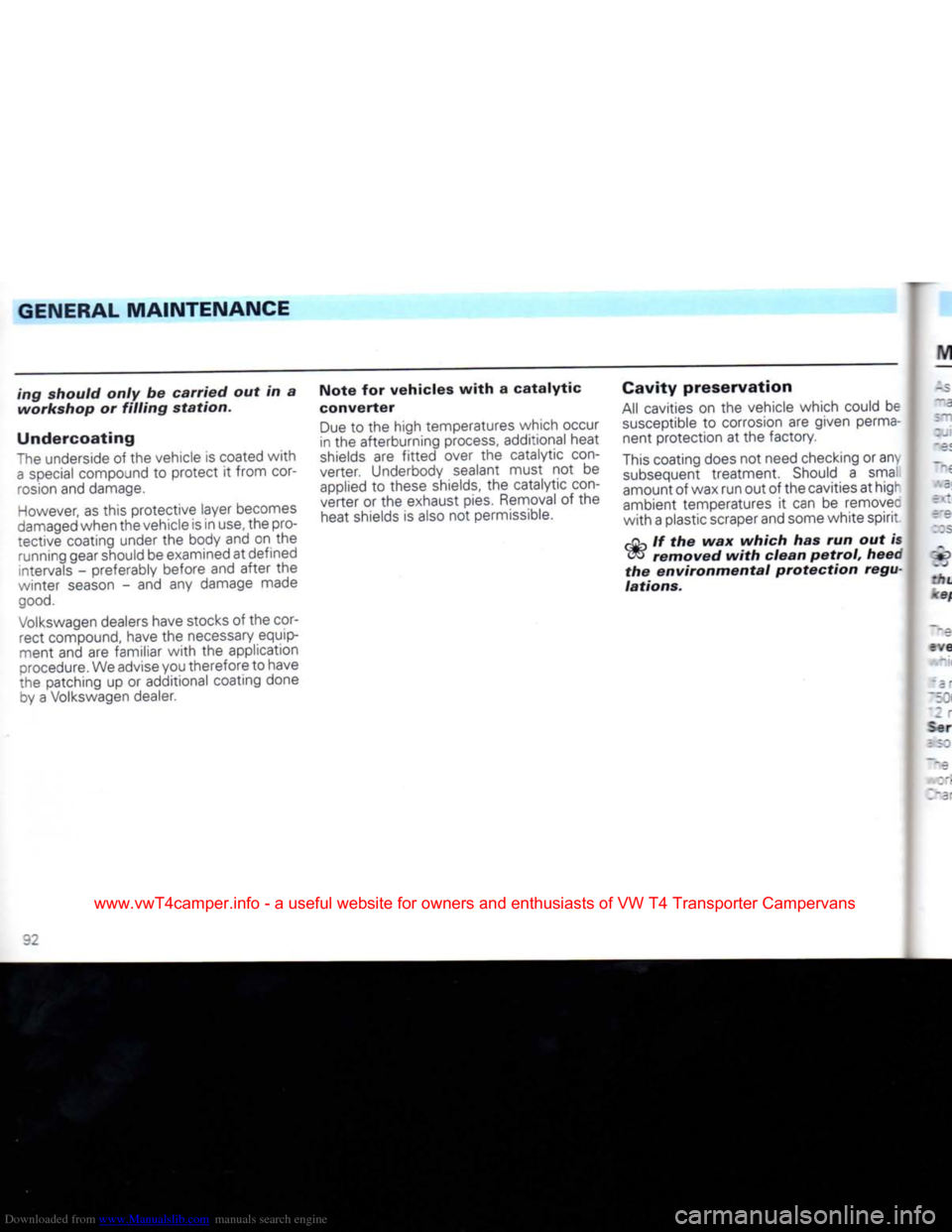
Downloaded from www.Manualslib.com manuals search engine
GENERAL MAINTENANCE
ing should only
be
carried
out in a
workshop
or
filling
station.
Undercoating
The underside
of
the vehicle
is
coated with
a special compound
to
protect
it
from cor rosion and damage.
However,
as
this protective layer becomes
damagedwhen the vehicle is in use, the pro
tective coating under
the
body and
on the
running gear should be examined at defined
intervals
-
preferably before
and
after
the
winter season
- and any
damage made
good.
Volkswagen dealers have stocks
of
the cor rect compound, have
the
necessary equip
ment and
are
familiar with
the
application
procedure. We advise you therefore to have
the patching
up or
additional coating done by
a
Volkswagen dealer.
Note
for
vehicles
with
a
catalytic
converter
Due
to
the high temperatures which occur
in the afterburning process, additional heat
shields
are
fitted over
the
catalytic
con
verter. Underbody sealant must
not be
applied
to
these shields,
the
catalytic
con
verter
or
the exhaust pies. Removal
of the
heat shields
is
also
not
permissible.
Cavity preservation
All cavities
on the
vehicle which could
be
susceptible
to
corrosion
are
given perma
nent protection
at
the factory.
This coating does not need checking or any subsequent treatment. Should
a
smal
amount of wax run out of the cavities at high
ambient temperatures
it can be
removec
with a plastic scraper and some white spirit
QCK
If the wax
which
has run out is
<35 removed with clean
petrol,
heed
the environmental protection
regu
lations.
www.vwT4camper.info - a useful website for owners and enthusiasts of VW T4 Transporter Campervans
Page 95 of 164

Downloaded from www.Manualslib.com manuals search engine
GENERAL
MAINTENANCE
Maintenance
-s
the
vehicle
is
fitted
with
modern
low
~aintenance
technical components only
small
amount
of
regular servicing
is re
tired
in
order
to
maintain
the
roadworthi-
"sss,
economy and reliability.
~ne Inspection Service offered by the Vol ks-
I
agen dealers takes into account
to a
large
extent
the
individual annual mileage
cov-
e-ed and helps thus
to
keep
the
operating
:osts
as
low as possible.
Regular maintenance helps to
-J
ensure
that
the emissions - and
thus the environmental burden are
kept
as low as possible.
The
Inspection
Service
is
required
every
12
months
or
every
30 000 km,
. nichever occurs
first.
I
a mileage
of
15 000
km
(petrol engines)
or
"500
km
(Diesel engines)
is
reached before "2 months
has
elapsed,
the Oil
change
Service must
be
carried out. See page
98
5
so and
the
Service Schedule.
~ie Service Schedule also shows what »rk
is
done
at the
Inspection
and Oil
Inange
Services.
In
arduous
operating
conditions, e.g.
extremely low ambient temperatures, very
dusty conditions etc. certain service oper
ations should be carried
out
between the in
tervals specified.
This
applies
in
particular
to:
• Changing
the
engine
oil
• Cleaning
or
changing
the air
cleaner
el
ement
• Draining water from
or
renewing the fuel
filter
on the
Diesel engine
The
service operations should be carried out by
a
Volkswagen dealer because this work
requires specialist knowledge, workshop
equipment and special tools. Furthermore
this work must
be
done
in
accordance
with
out instructions.
Complete
proof
of
servicing
by a
Volks
wagen dealer can be one
of
the stipulations
for
the
upholding
of any
warranty claims during
the
one year warranty period.
Attention
Safety
regulations
place
very
strict
limits
on the
amount
of re
pairs
and
adjustments
to
engine
and
running
gear
parts
which
can
be
done
by the
owner.
By
tinker
ing
with
parts
which affect
the
safety
of a
motor
vehicle
one can
endanger
oneself
and
other road users.
Altering the engine settings is detrimental to the
exhaust
emissions.
This means
that
the envi
ronment is burdened unnecessarily
and the
fuel
consumption
also
in
creases.
The disposal of old oil, used brake
fluid,
dirty
coolant, defective
bat
teries or worn-out tyres etc. must be
done according to environmental
protection regulations. It is even
better
if old operating fluids and parts are used
again
and
do not become a burden on the envi
ronment. Through "recycling" valu
able
raw-materials and
energy
are
saved and at the same
time
it re lieves the load on the toxic waste
dumps.
Volkswagen dealers collect
all reusable materials and parts and
passes
them
on to the correct
agency
for recycling.
www.vwT4camper.info - a useful website for owners and enthusiasts of VW T4 Transporter Campervans
Page 96 of 164
Downloaded from www.Manualslib.com manuals search engine
GENERAL
MAINTENANCE
Bonnet
To
release
lock, pull lever on
left
under in strument panel until bonnet springs up
slightly.
To
open the bonnet press the safety catch
in (arrow).
Lift bonnet until the strut engages.
Note
Before
opening the bonnet ensure that the
wiper arms are not lifted off the wind
screen.
Otherwise damage can occurto the paintwork. To close bonnet
lift
it slightly adn pull the
strut forward - see illustration. Let bonnet
drop into locks from a height of about 30 cm
- do not press it
closed.
•
Attention
• For
safety
reasons the
bonnet
must
always
be
properly
closed
when
vehicle is moving. Always
check
therefore
after
closing the
bonnet
that
the lock is engaged.
Should
you notice at any time when driving
that the bonnet is not properly
secured,
stop
and
close it.
www.vwT4camper.info - a useful website for owners and enthusiasts of VW T4 Transporter Campervans
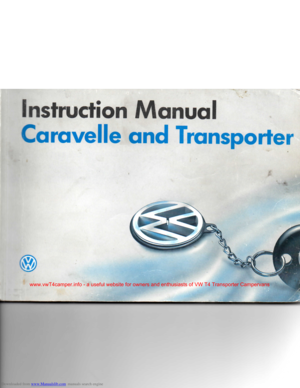 1
1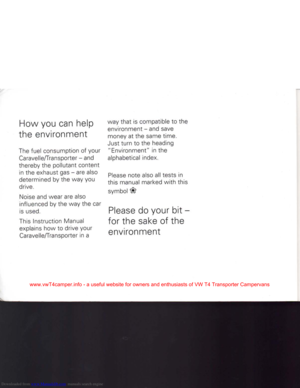 2
2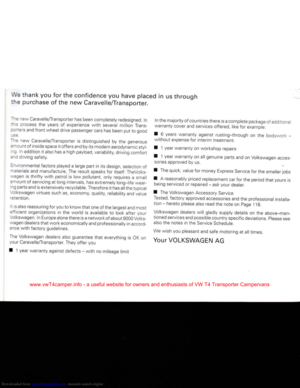 3
3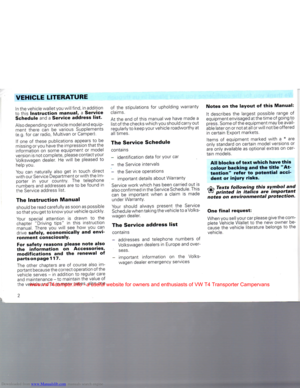 4
4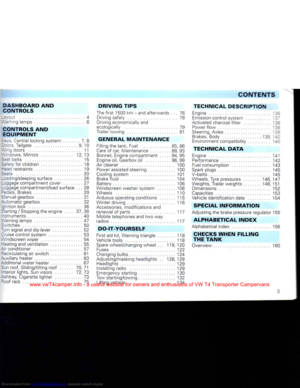 5
5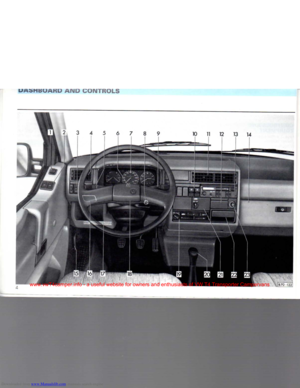 6
6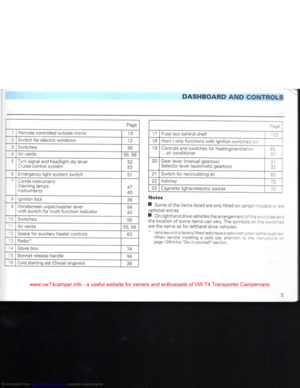 7
7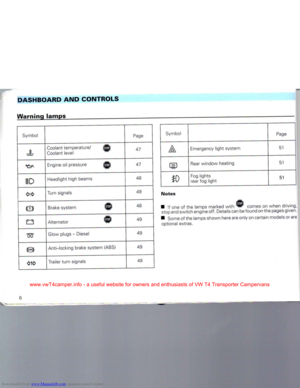 8
8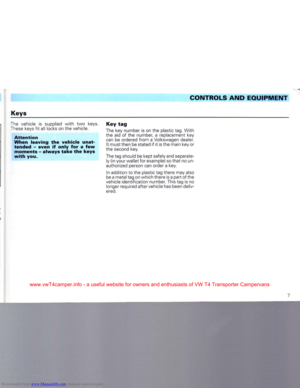 9
9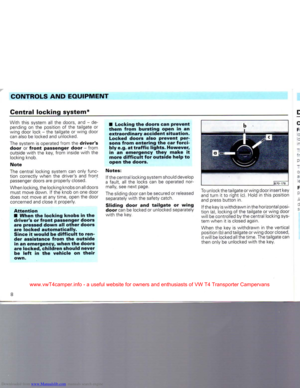 10
10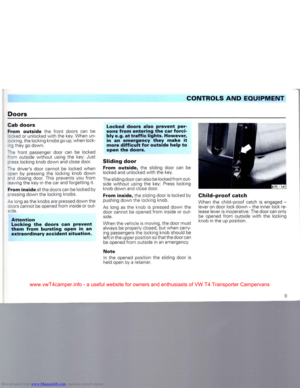 11
11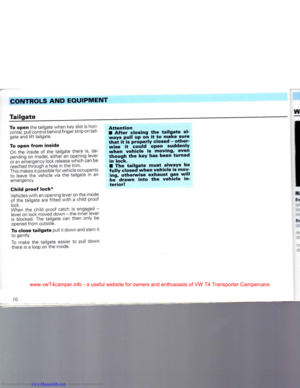 12
12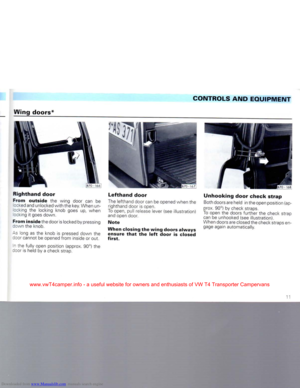 13
13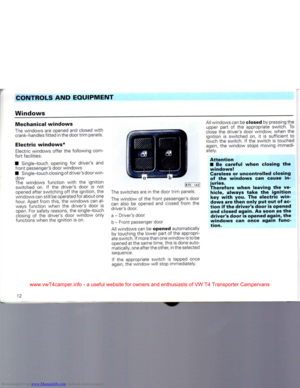 14
14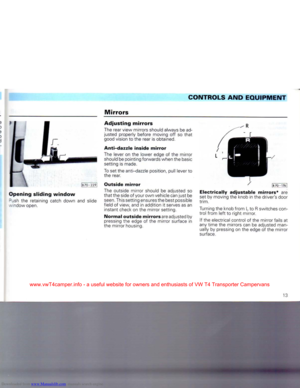 15
15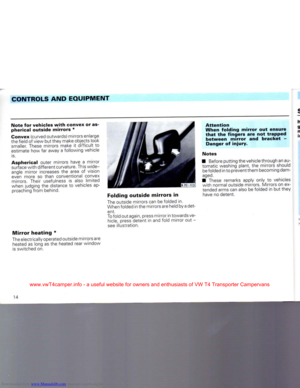 16
16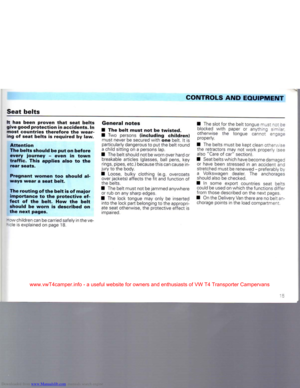 17
17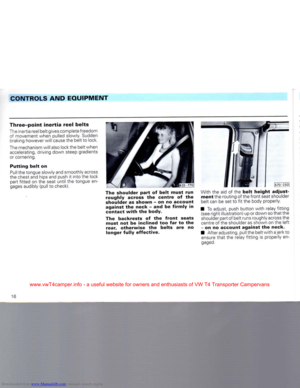 18
18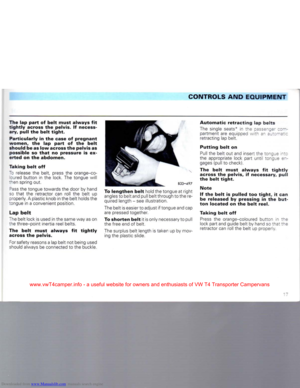 19
19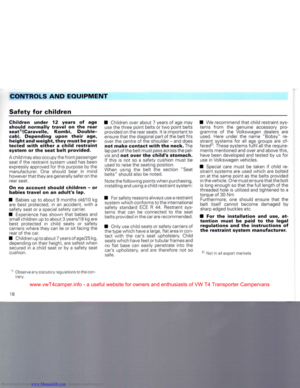 20
20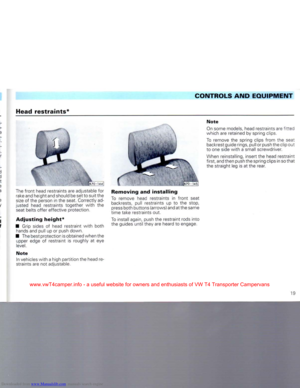 21
21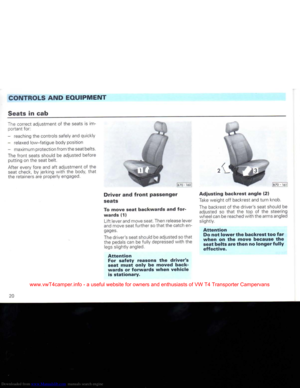 22
22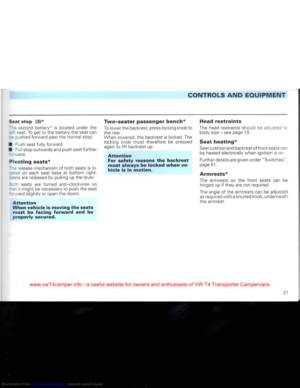 23
23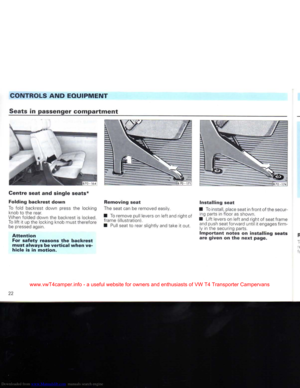 24
24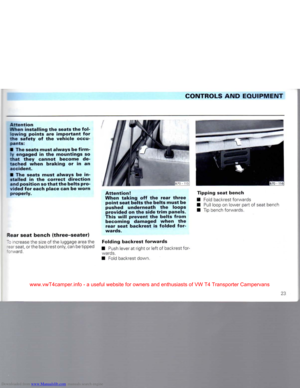 25
25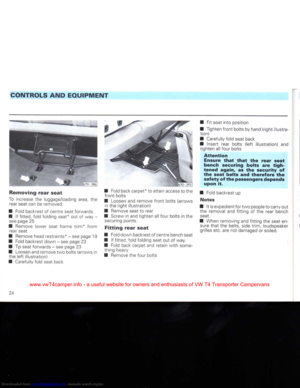 26
26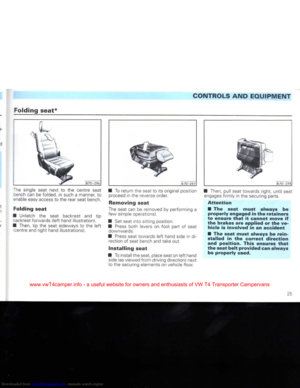 27
27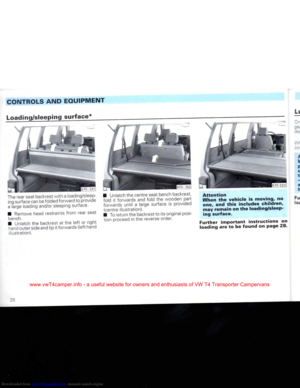 28
28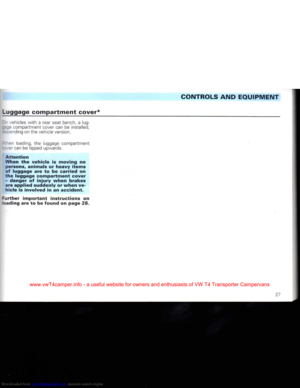 29
29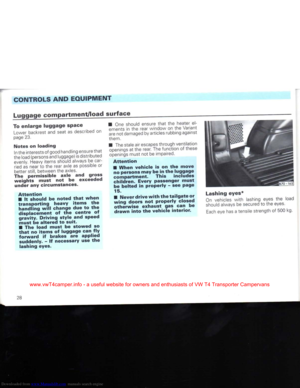 30
30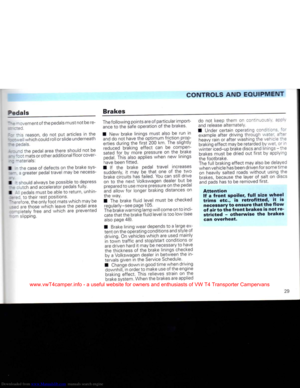 31
31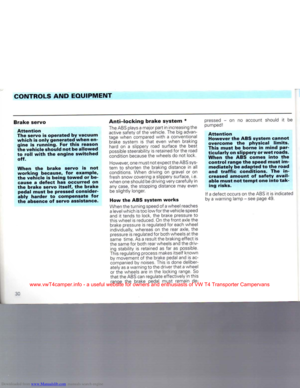 32
32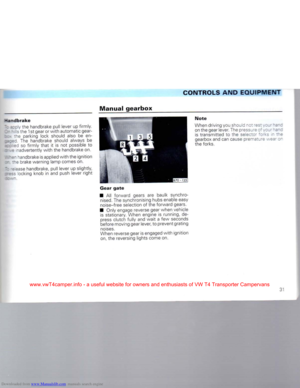 33
33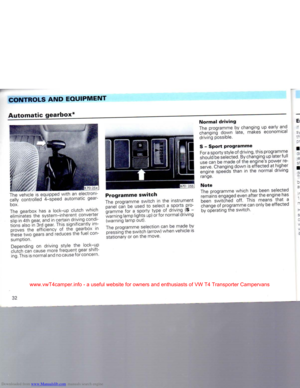 34
34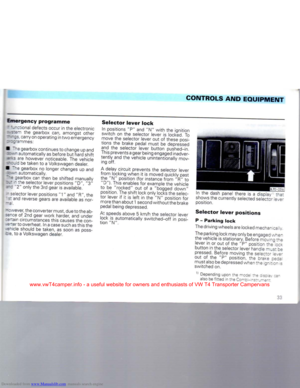 35
35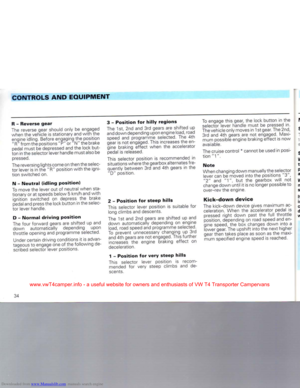 36
36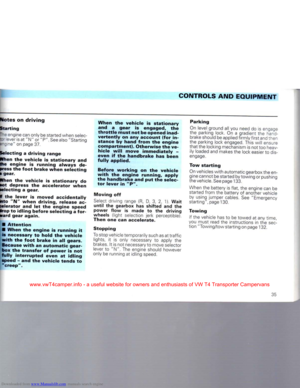 37
37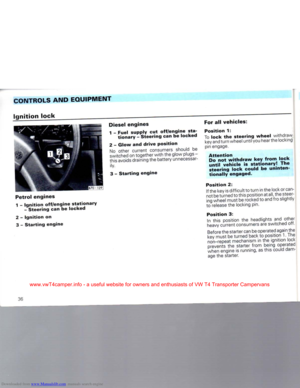 38
38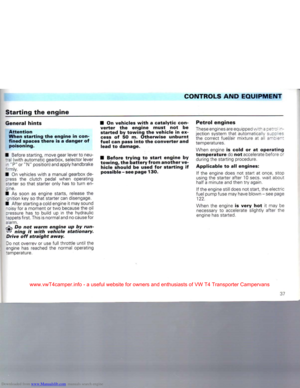 39
39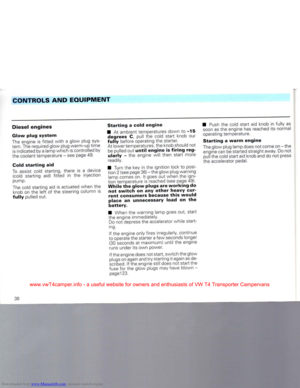 40
40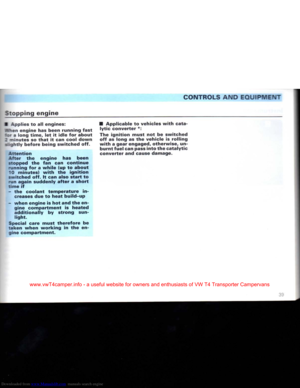 41
41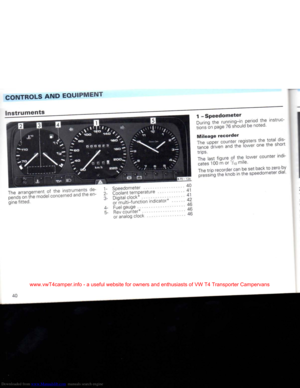 42
42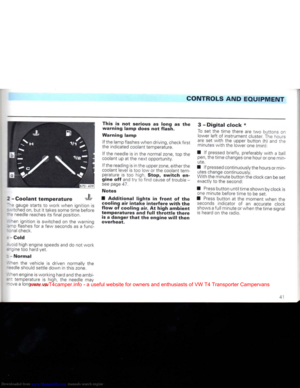 43
43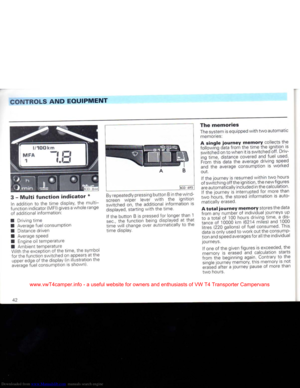 44
44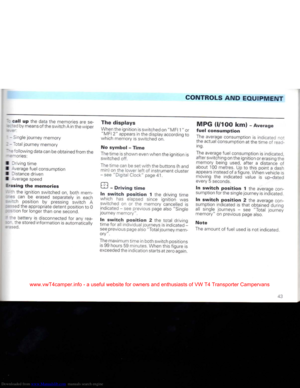 45
45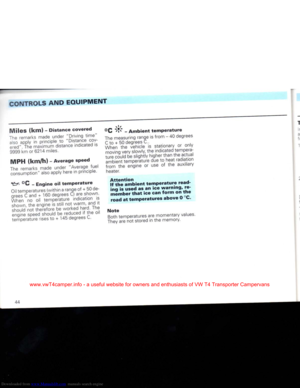 46
46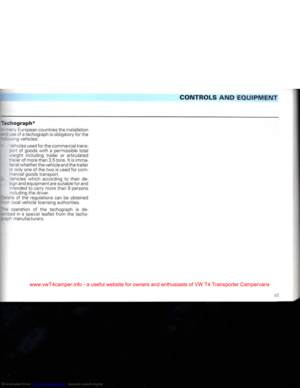 47
47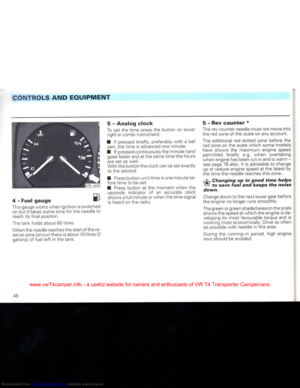 48
48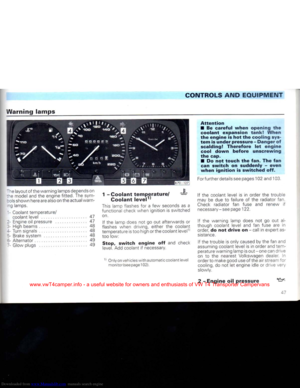 49
49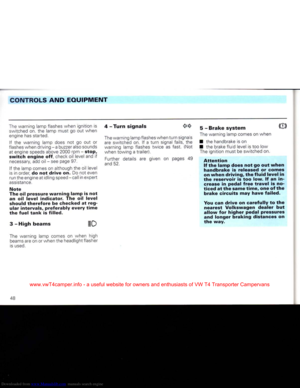 50
50 51
51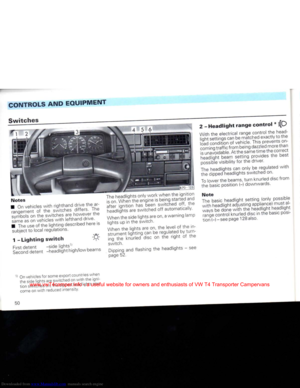 52
52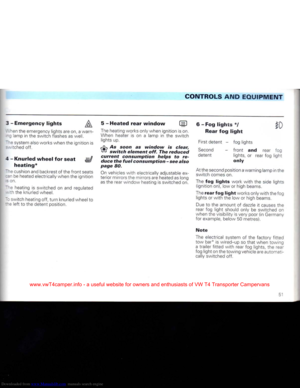 53
53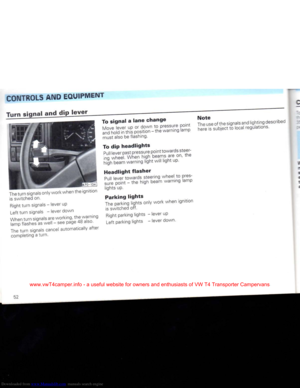 54
54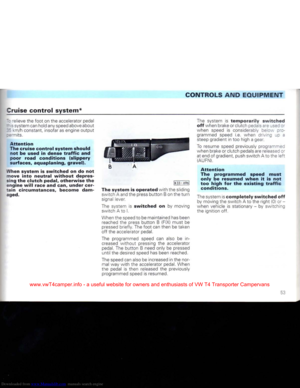 55
55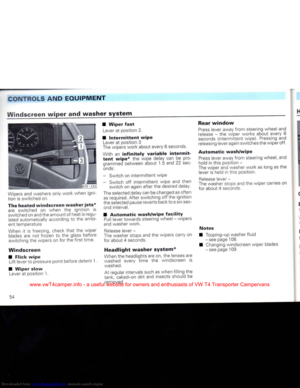 56
56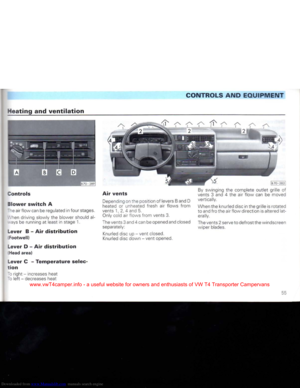 57
57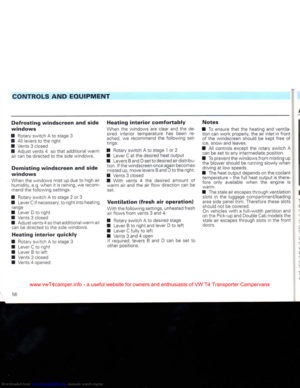 58
58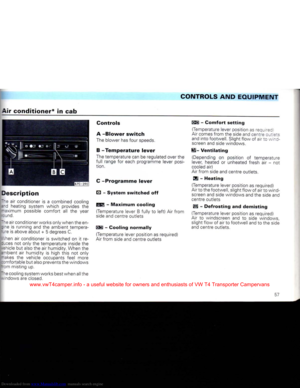 59
59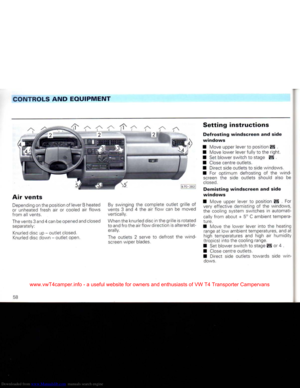 60
60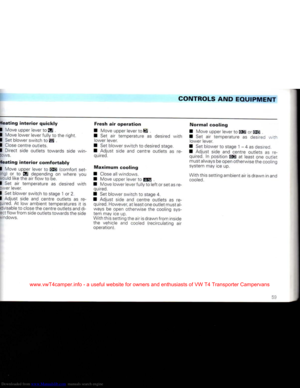 61
61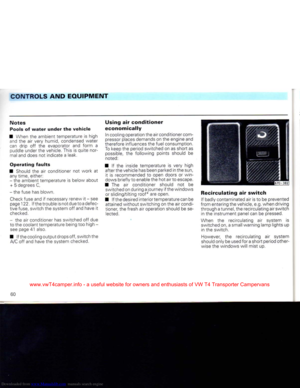 62
62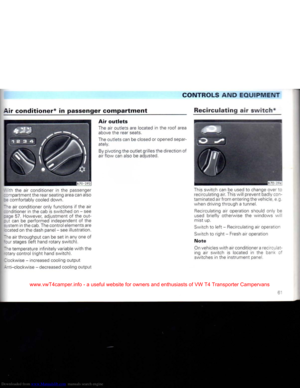 63
63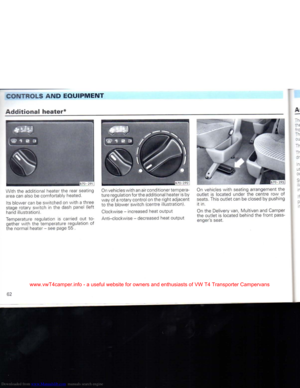 64
64 65
65 66
66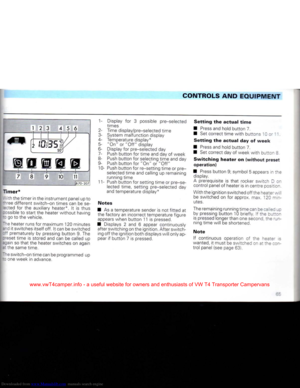 67
67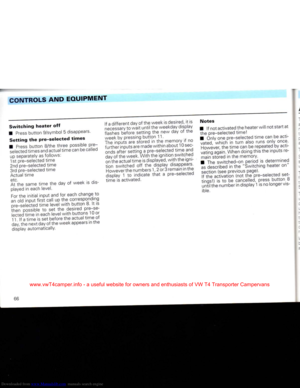 68
68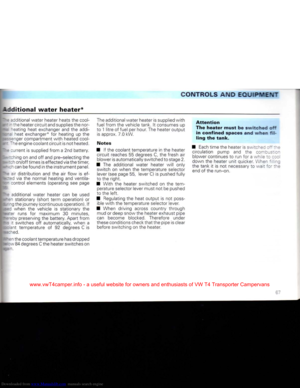 69
69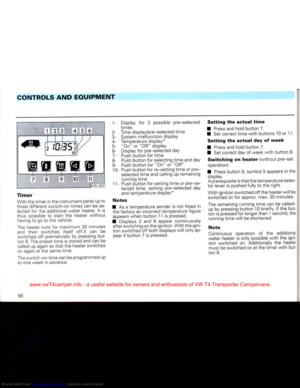 70
70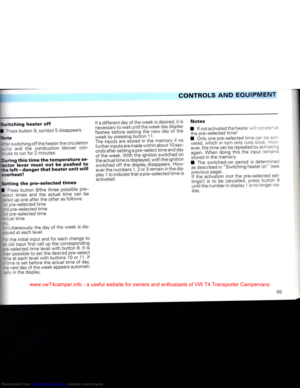 71
71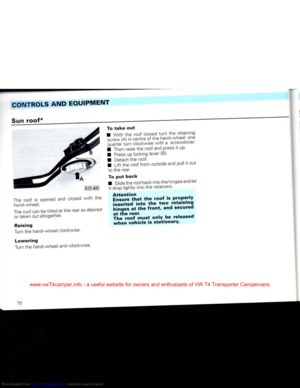 72
72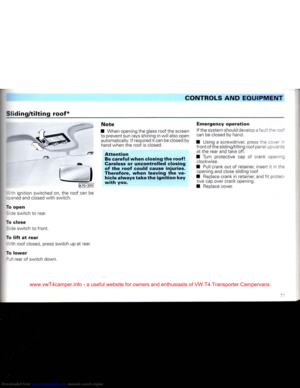 73
73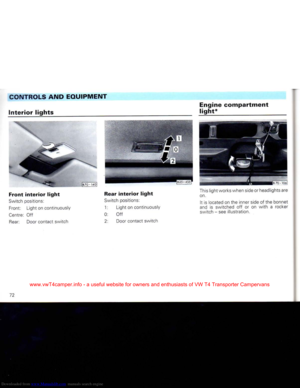 74
74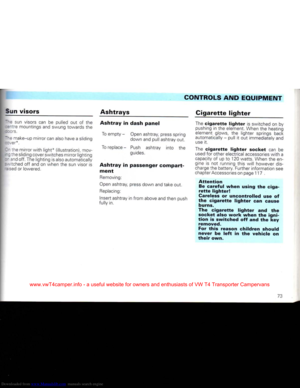 75
75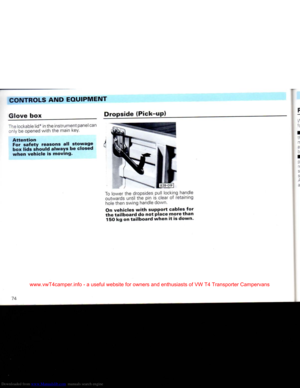 76
76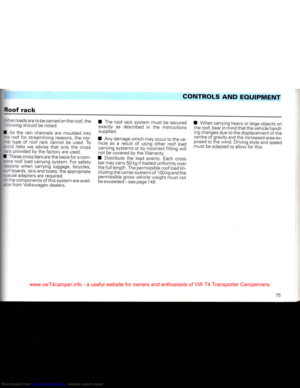 77
77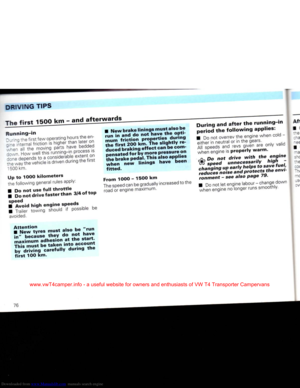 78
78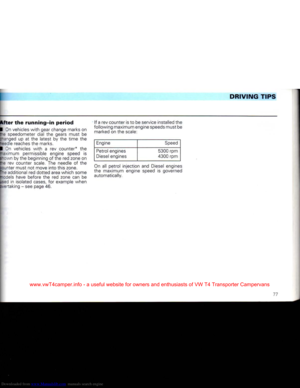 79
79 80
80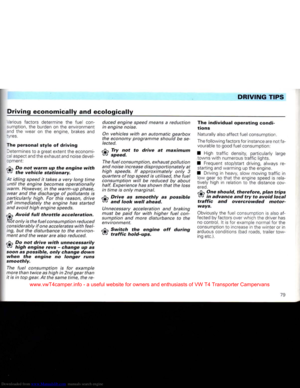 81
81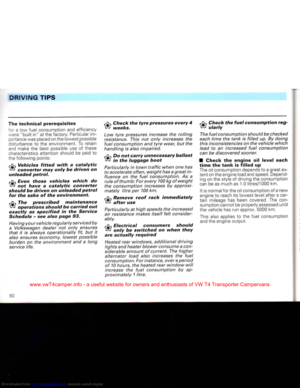 82
82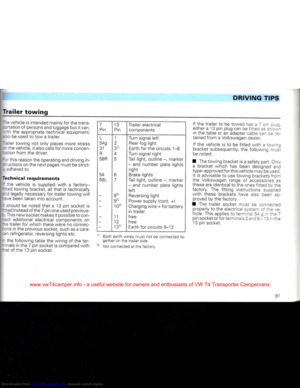 83
83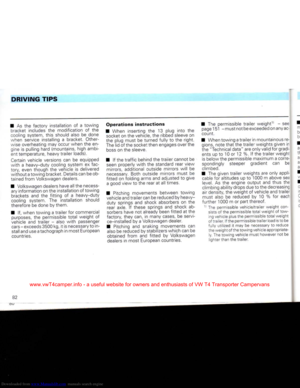 84
84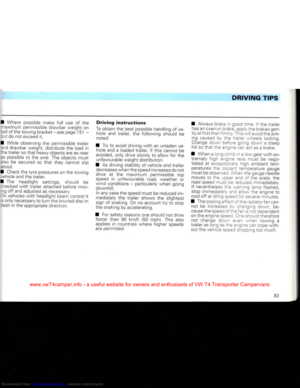 85
85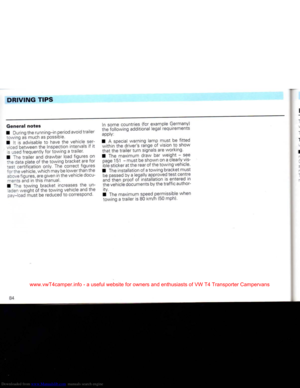 86
86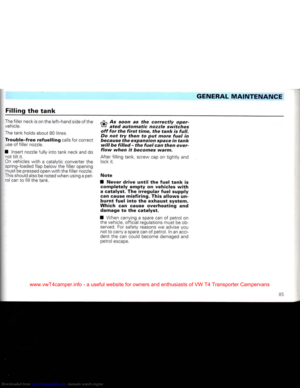 87
87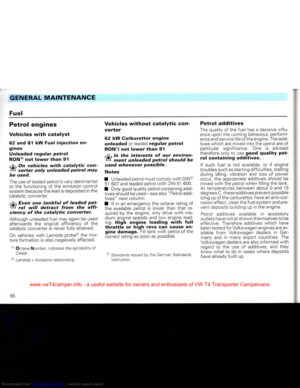 88
88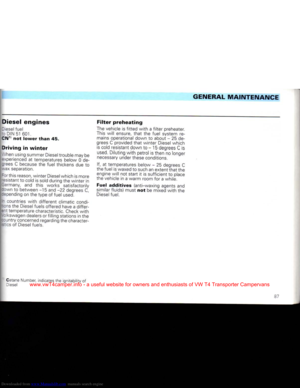 89
89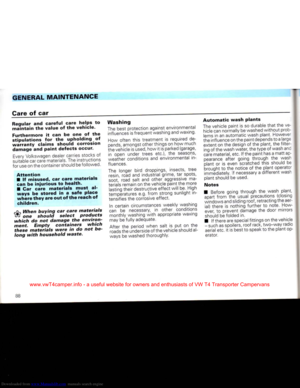 90
90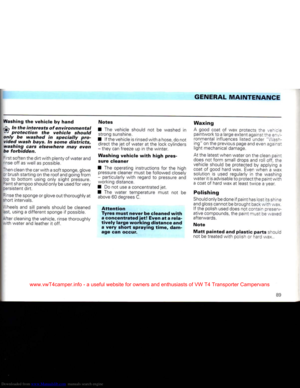 91
91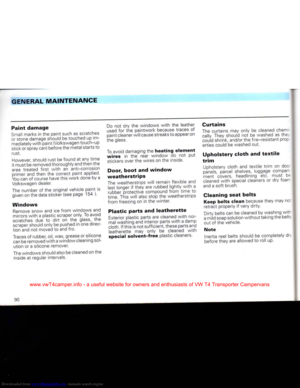 92
92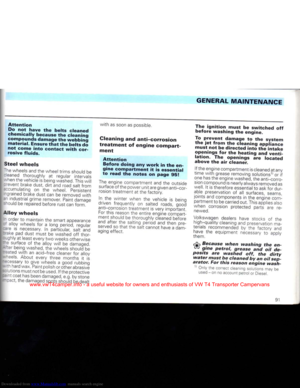 93
93 94
94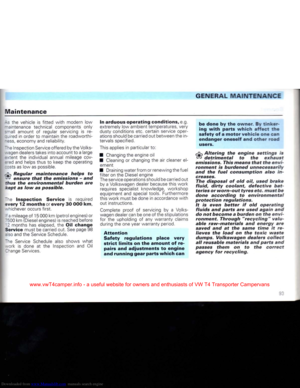 95
95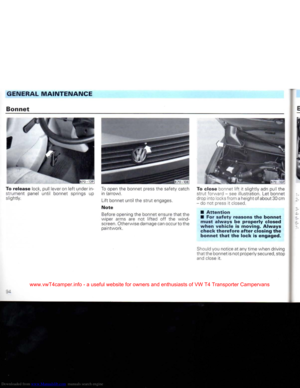 96
96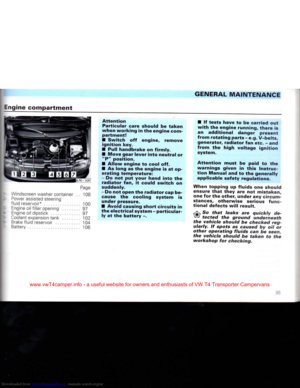 97
97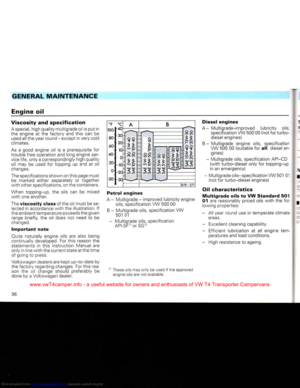 98
98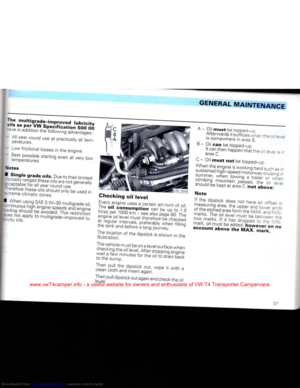 99
99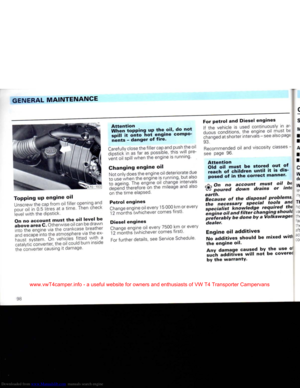 100
100 101
101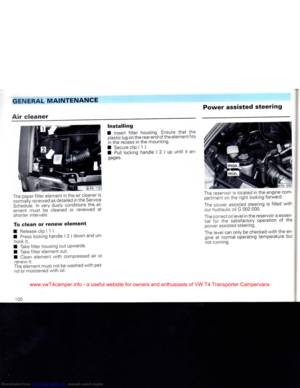 102
102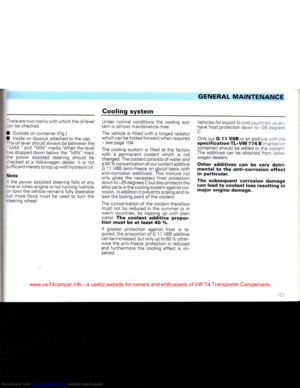 103
103 104
104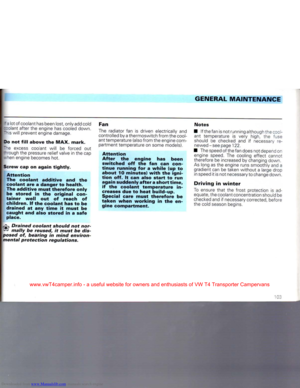 105
105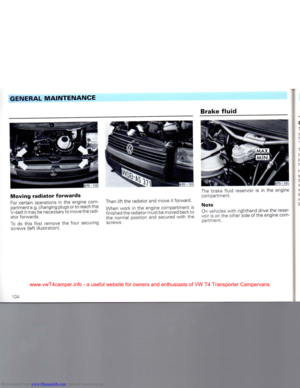 106
106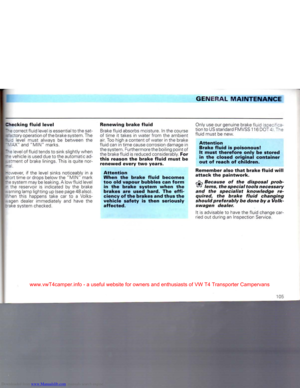 107
107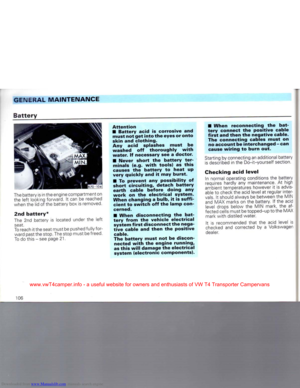 108
108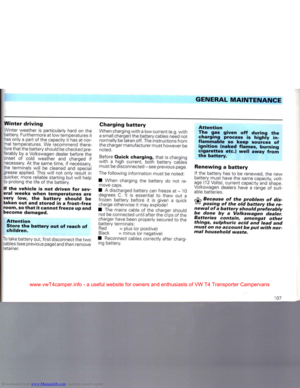 109
109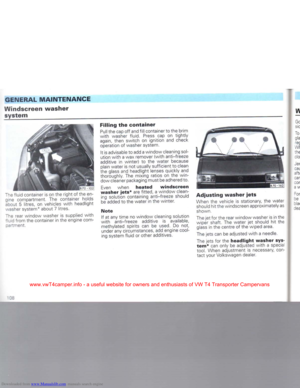 110
110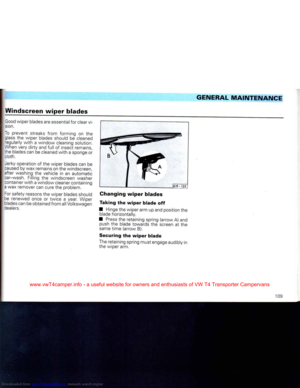 111
111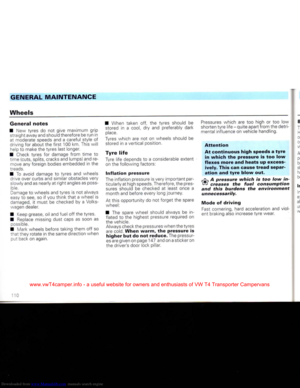 112
112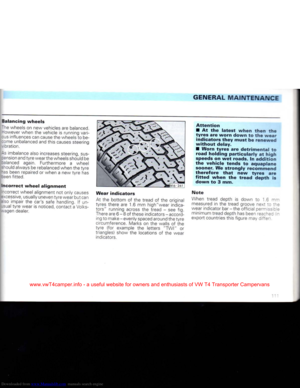 113
113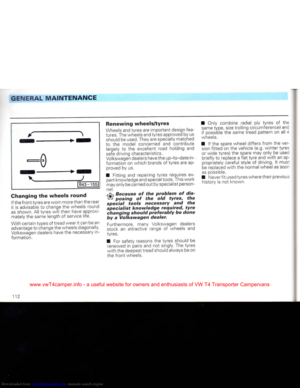 114
114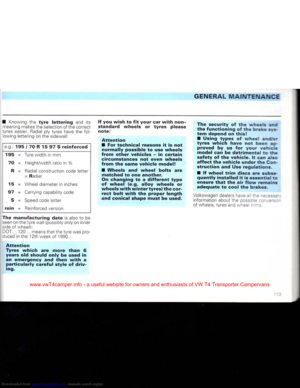 115
115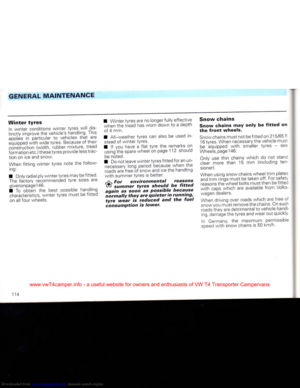 116
116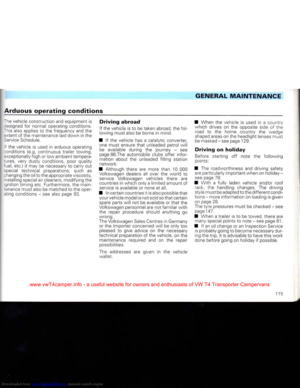 117
117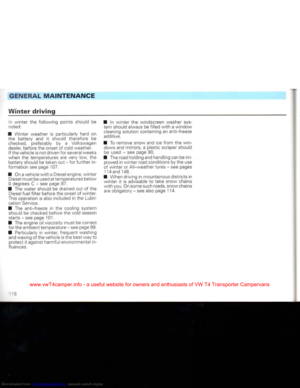 118
118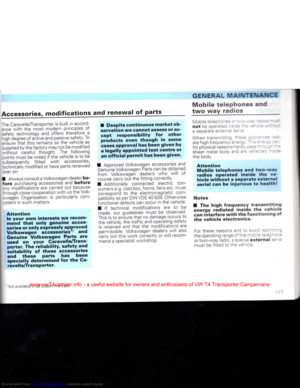 119
119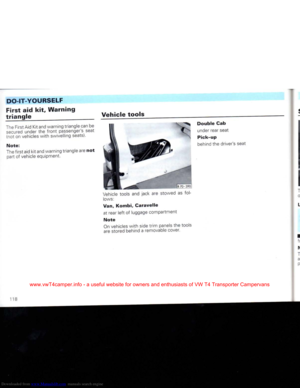 120
120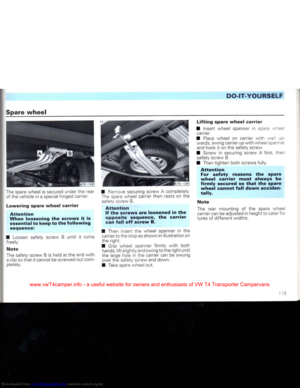 121
121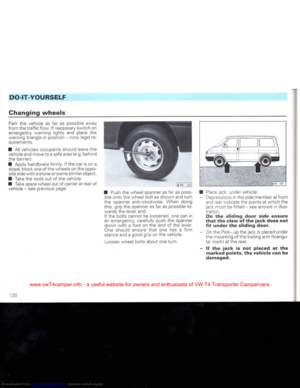 122
122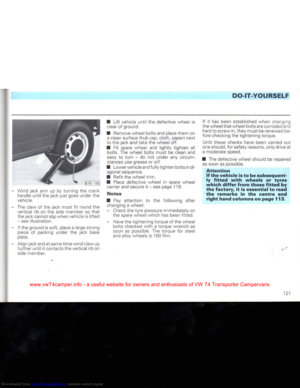 123
123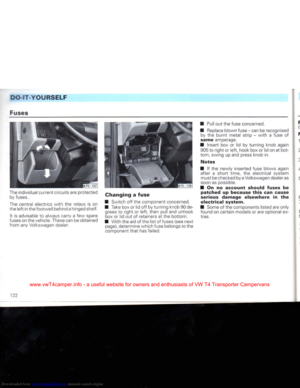 124
124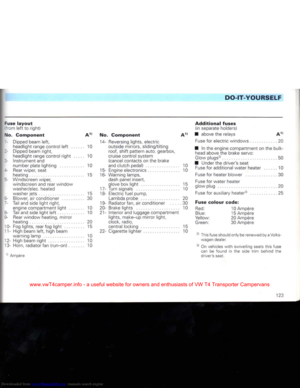 125
125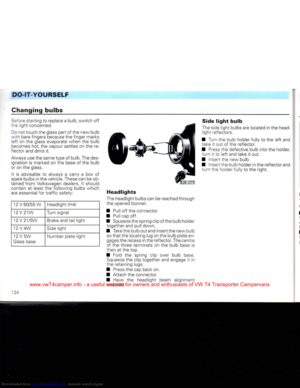 126
126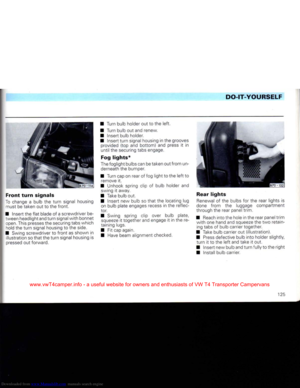 127
127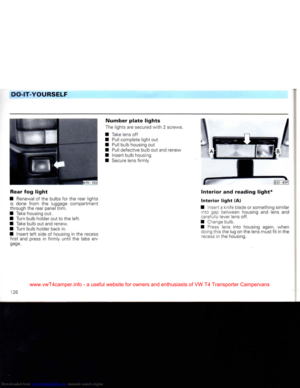 128
128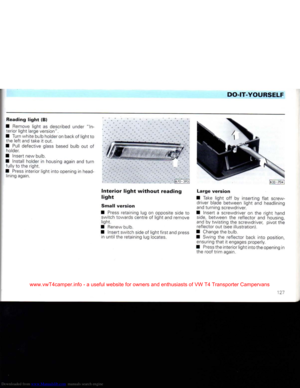 129
129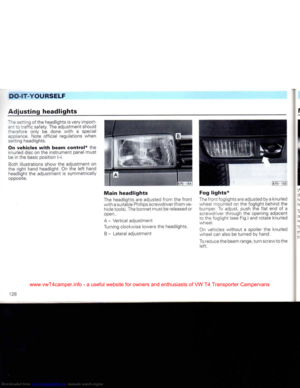 130
130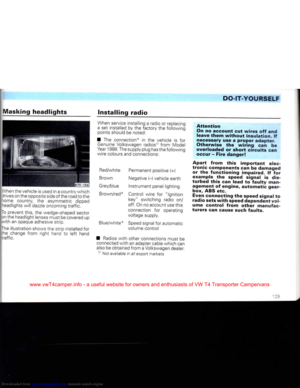 131
131 132
132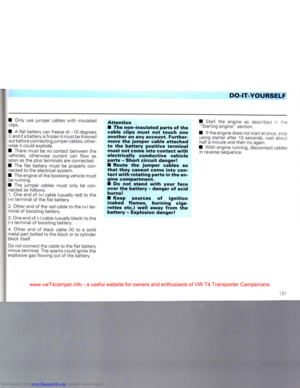 133
133 134
134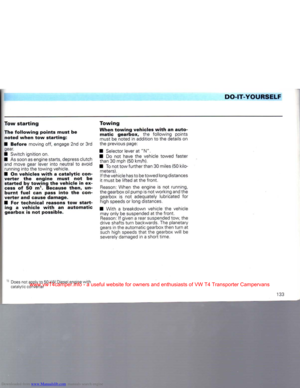 135
135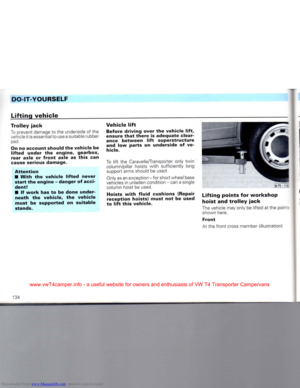 136
136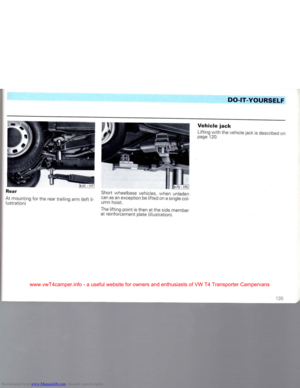 137
137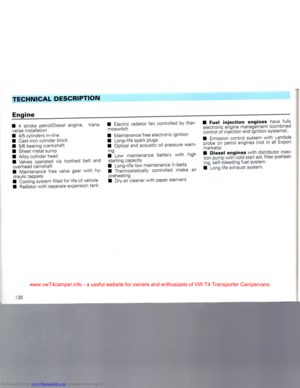 138
138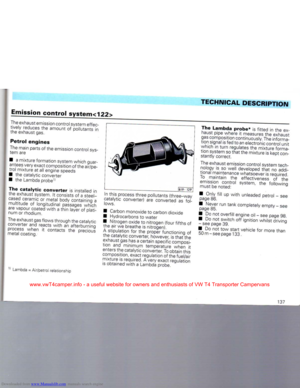 139
139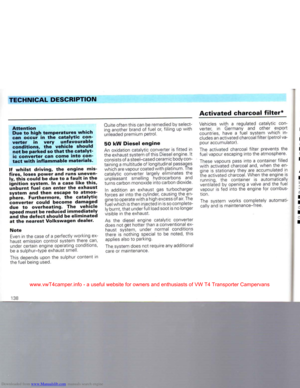 140
140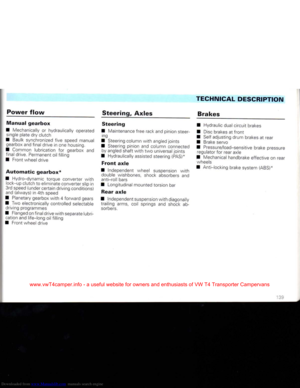 141
141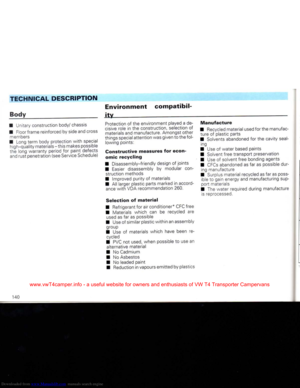 142
142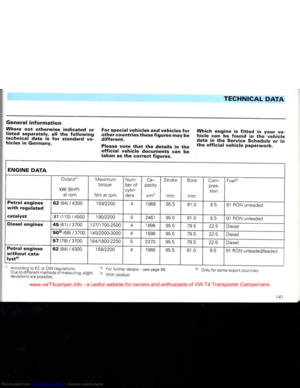 143
143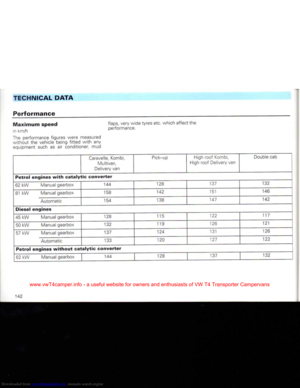 144
144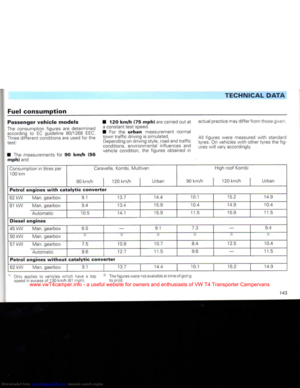 145
145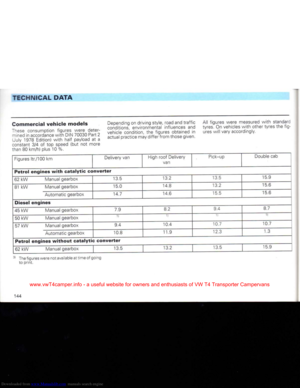 146
146 147
147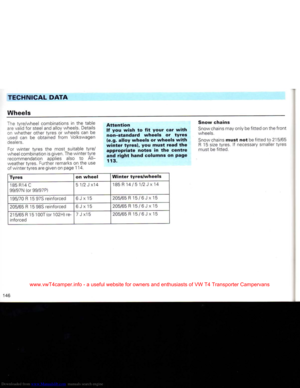 148
148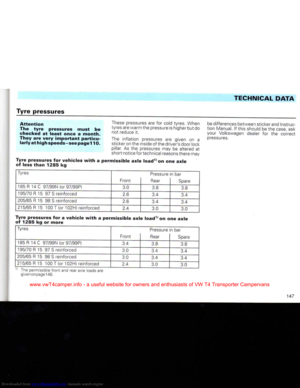 149
149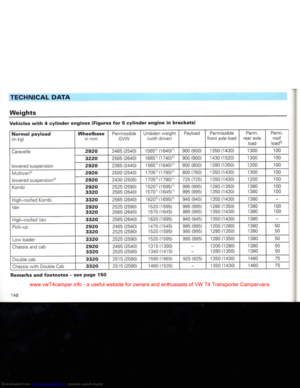 150
150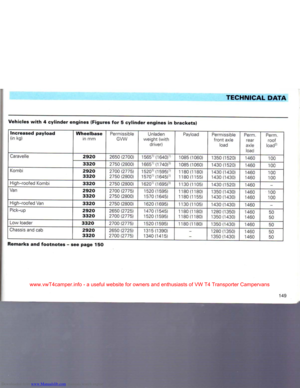 151
151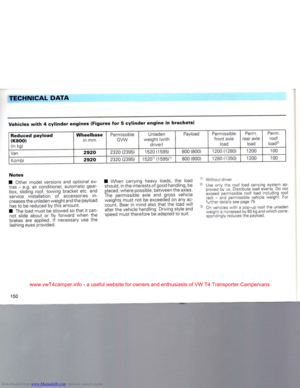 152
152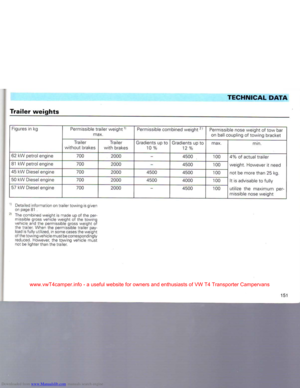 153
153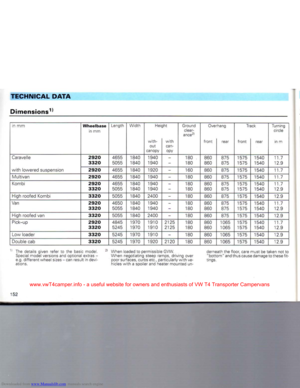 154
154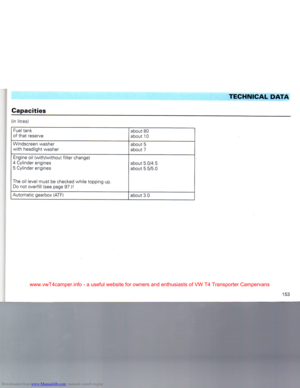 155
155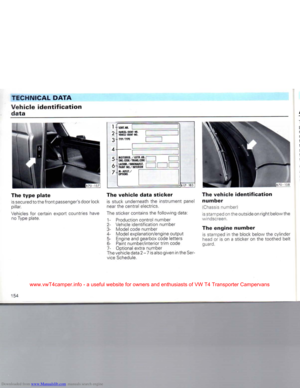 156
156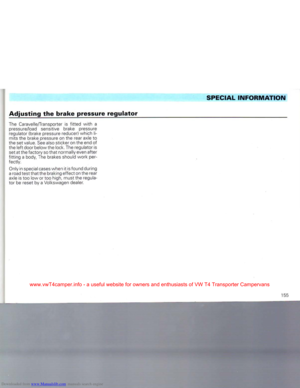 157
157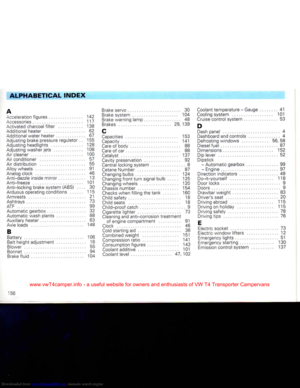 158
158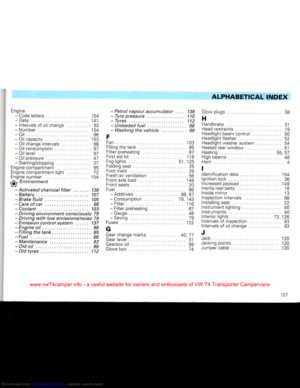 159
159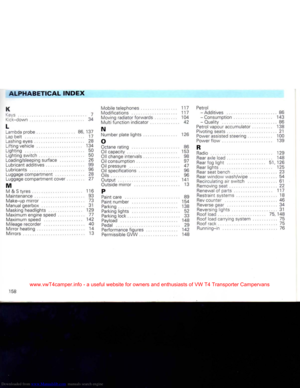 160
160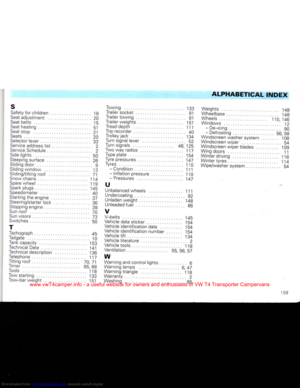 161
161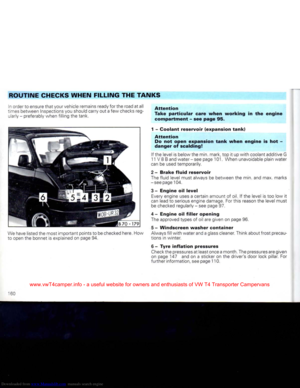 162
162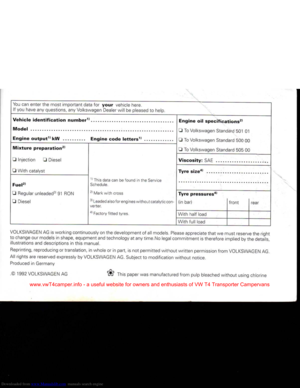 163
163






